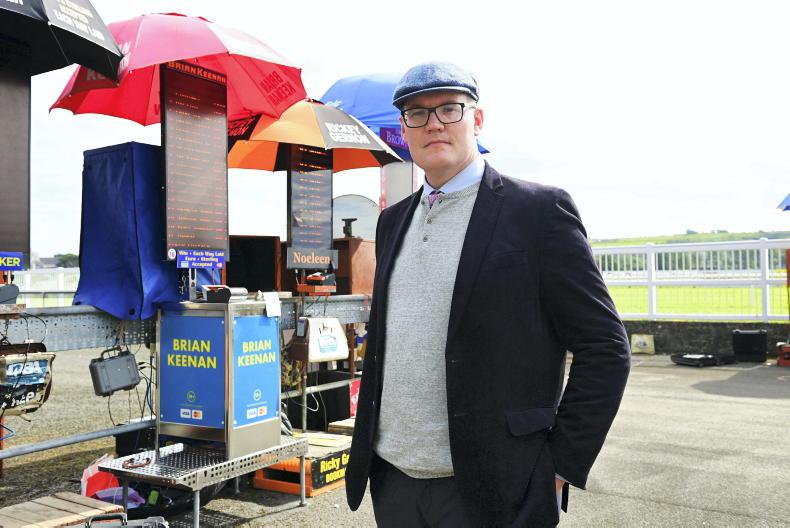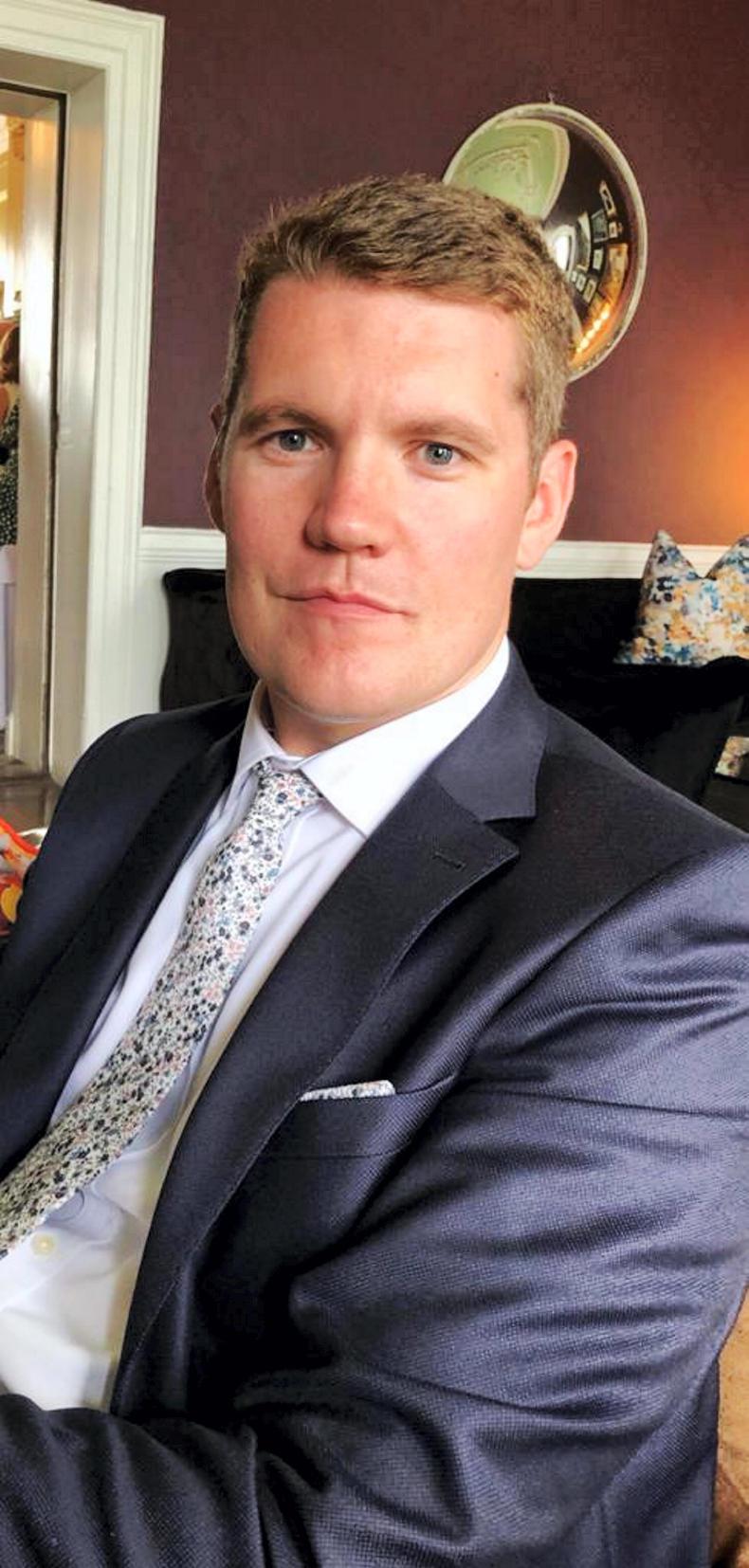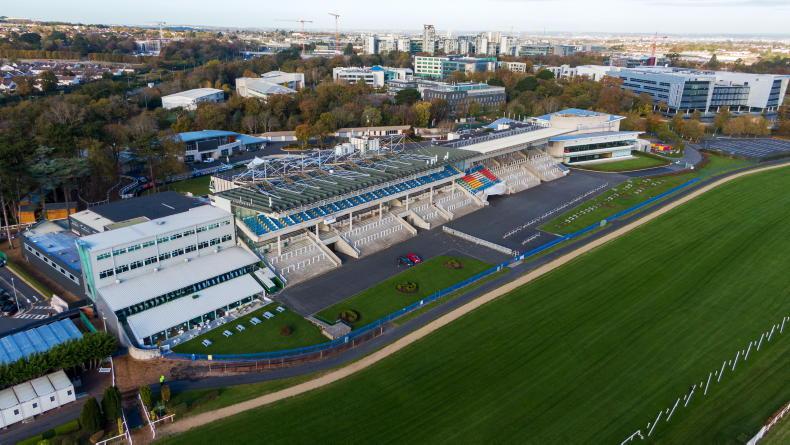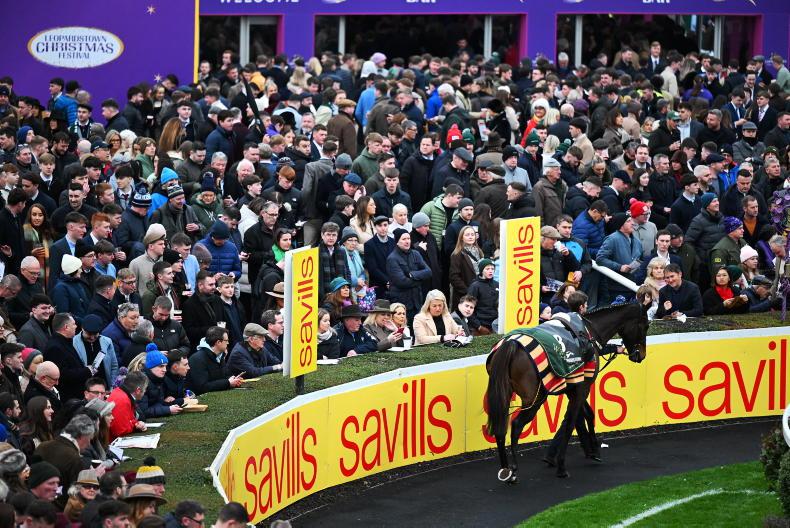“IT can be done” Brian Keenan wrote in a retweet of Pat Healy’s announcement that nearly 26,000 people attended Listowel for the Kerry National on Wednesday.
On course bookmakers need it to be done, now more than ever. Keenan has been writing this in his popular blog for a while now. His ramblings were particularly captivating during the pandemic when he encapsulated the feelings of a sector that even pre Covid, had felt like it has been drifting further and further away from the industry through the booming online betting sector, falling attendances on racecourse, an increased movement towards a cashless society, society’s increasingly negative view of betting and other reasons beside.
Yet the lords and ladies of the ring are a resilient bunch and have been back in force, with new names appearing and renewed positivity among the ranks from what they say is a steady return of punters to the track.
The nature of their business is never steady, there will always be good days and bad days but the focus has changed with the selected big days and festivals now imperative to the bottom line. That is a reality Keenan can accept but what he can’t accept is poorly attended fixtures that shouldn’t be so.
We’d all like to see racing attendances grow to be as healthy as ever, but the livelihood of on-course bookmakers depends on it, and so their experiences can be used as an informative prism to judge what racecourses around the country are doing to get people going racing.
“We were nervous enough coming back, individually and collectively, just from talking to my colleagues,” Keenan said this week. “You were wondering if people were going to come back, were they going to migrate to online betting or lose interest altogether, but it was Irish Grand National day at Fairyhouse when I first thought, we’re okay.
“The big meetings are the real bread and butter for us now. They have to go well, if they don’t go well, I won’t say the others are irrelevant but there’s no point having a good midweek/ordinary day and then having a bad festival.
“To be fair to the western tracks, they’ve been even better than before Covid. It’s been surreal how busy Ballinrobe has been. Sligo has held its own and Roscommon has held its own. That was a really good surprise.”
Listowel’s attendances this week have continued that trend, in direct contrast to what is happening at the big tracks, namely the Curragh, which has so far struggled again this year to gain momentum.
Indeed it was a damning indication of where the Curragh is at when it emerged that some bookmakers didn’t even pitch up at the second day of Irish Champions Weekend, for which just over 6,000 people attended.
Keenan texted his staff that morning to have the day off and just went down himself to pitch up inside. He wrote after that it was hardly worth his time.
“Look, it’s tough to be very harsh on them,” he says. “Last Sunday week was a wash out and there was a gale blowing through the place on Derby Day. But I think bookmakers choosing not to attend could be the norm if the Curragh continues the way it is.
“From our point of view it’s a complete waste of time at the moment. I take no pleasure in saying that because I’ve invested in a pitch there a week before the new place opened.
“I love racing and I hate seeing the Curragh the way it is. I look at the calendar every week to see where I go and now when I see I have a day or two in the Curragh I just don’t look forward to it, it’s horrible, it’s so mundane.
“We’re (bookmakers) in the wrong area, the place is too big and there’s nobody going to it. It just sucks the life out of you and that shouldn’t be the way.
“It’s like being in a restaurant, no matter how good the food is, if there’s nobody there you’re not going to enjoy the experience and that’s the way I’d describe the Curragh.”
The €81 million euro question is what is going wrong. Keenan and his colleagues would love to help but so far they haven’t been approached, either casually or in an official way, and that disappoints him.
“As I said, we have a vested interest, we need people on course,” he says. “We have a lot of savvy people in our sector with lots of ideas but no one has asked us.
“Personally I think they need to halve the size of the Curragh. Where the betting ring now is, it’s just too vast and there’s no atmosphere in it. I’d actually put a hoarding across from the end of the grandstand where the bookmakers are, and have that as a car park or whatever for 90% of the meetings.
“I’d put the bookmakers in front of the grandstand, parade ring at the back. They need to start creating an atmosphere in the place because it’s pretty hollow.
“You look at what the smaller tracks are doing well and it’s all about community. The racecourse manager is down on the ground meeting people. You go to Ballinrobe and it’s spotless, the facilities are there, it’s not expensive.
“Maybe less is more. The Curragh had four Saturdays in August and that is a lot of racing. But the smaller tracks have their finger on the pulse. You can see the racecourses that really want people and I think the other ones have got a little lazy and they’re quite happy with the television rights money.”
Steeped
Keenan’s family is steeped in the bookmaker industry. His great grandfather John stood on course while his father Brian had five shops and also kept a mare or two at home on the farm. Brian has followed both leads.
He went to school in Clongowes and it just happened that there was a real racing culture there at the time. Patrick Mullins was in his class and was his best man at his wedding last year. Trainer Jack Davison was there in and around the same time, as well as Kevin Oxx, son of John.
“In transition year I went to Newmarket and worked in the National Stud for a couple of months,” Keenan recalls. “I wasn’t sure which route I’d go because we always had the farm at home but I was always going to do something in racing.
“After school I went to UCD and I did food and agriculture business management just to keep my mother happy. But during college I worked on course with Darragh Fitzpatrick and very shortly into doing that, I just thought this is for me, I love racing, I love meeting people, I have a huge interest in gambling.
“That was around 2011 or ‘12. I suppose at the time people were wondering if there was a future in on-course bookmaking. Maybe I was a bit youthfully naive but I had a chat with my father and he was fully supportive. Without his encouragement, it wouldn’t have happened. He told me if you believe in it, keep at it.
“It was tough but there was a good opportunity there as well. There were good pitches coming up in lots of racecourses. I was kind of getting involved in some mares at home at the time and I kind of had the same strategy, I wanted to take a chance on some mares that nobody else wanted, try to find value, form an opinion, and we were the same with buying pitches.
“There were other guys that were my age as well that you could kind of see coming through. Brian McDonald, Mal McCartan, David McManus and more recently Anthony Kaminskas so I suppose it helped that they were seeing the same niche and have done okay at it so far as well.”
In this piece earlier this year, Kaminskas talked about how punters were being attracted back to the racecourse because they were being badly serviced by the big corporate bookmakers, where the computer-says-no system was in direct contrast to how bookmaking used to and should be.
Keenan agrees and though he says not among the biggest layers in the ring, he still needs to take a view and stick his neck out. He wrote in his blog after Galway that during the week he wondered about whether he was going to be able to go on holiday or not, as contrasting results transpired through the week.
It’s an exhilarating way to make money if you can do it and yet while Keenan loves the bookmaking and gambling side of it, ask him why does what he does, and without hesitation he’ll say it’s the people.
He loves the camaraderie with his colleagues, punters, the day-to-day workers on the Irish racing scene - as Pat Healy famously once said, the moving circus with the same clowns in different towns.
“I have been involved with sales-toppers and horses that have done well in Goffs and Tattersalls but there’s no buzz like the races,” Keenan says. “I love meeting people and travelling to different towns and culture. It’s not really a job, it’s a lifestyle and I love it.”
It will be interesting to measure the view of the on-course bookmakers that more punters are coming back to the track when the end-of-year figures regarding total turnover are released early next year, but undoubtedly bookmakers are very much still playing an integral role for raceday atmosphere.
On course bookmakers have at times had a rocky relationship with Horse Racing Ireland but Keenan says he has no criticisms, in particular pointing to the abolishment of the stipulation that bookmakers have to pay pitch fees whether they go racing or not as a very welcome advancement.
Worry
What he does worry for is the general societal view of betting, which seems to get more and darker with each passing year.
“I think we nearly need to whisper that we like a bet, or that I’m a bookmaker or you’re a punter,” Keenan says. “I’m not saying that we should have a lawless system but fun and responsible gambling should be embraced and not shunned. Little things like kids not being able to have a €2 bet on the Tote now, that is ridiculous, it’s PC gone mad.
“People involved in gambling like myself, we need to pull our socks up on this one because this is one of the biggest challenges coming down the line. We need to differentiate live sport and horse racing from casinos.
“Horse racing needs to stay a million miles away from that stuff. If you want to watch a horse race and have a fiver or a tenner, I think that’s a healthy bet, if you want to go in and play virtual roulette, that’s a slippery slope.
“That differentiation isn’t being made and the people commenting on it, television and radio hosts, general media, they’re uneducated on it. I’d fear that we will get bandied on with new legislation for casinos and online virtual slot machines and that’s not where we want to be.”
That aside, Brian Keenan is optimistic for his future as an on-course bookmaker, accepting that the model has changed slightly.
“I think there’s a career there,” he says. “I think it’ll be 80-100 days a year. I think the festivals have the potential to get bigger and bigger.
“I think the day to day stuff might struggle but my son was born nine weeks ago, and I’d like to think in 16-18 years time he’d be able to work alongside me.”


 This is a subscriber-only article
This is a subscriber-only article
 It looks like you're browsing in private mode
It looks like you're browsing in private mode













SHARING OPTIONS: